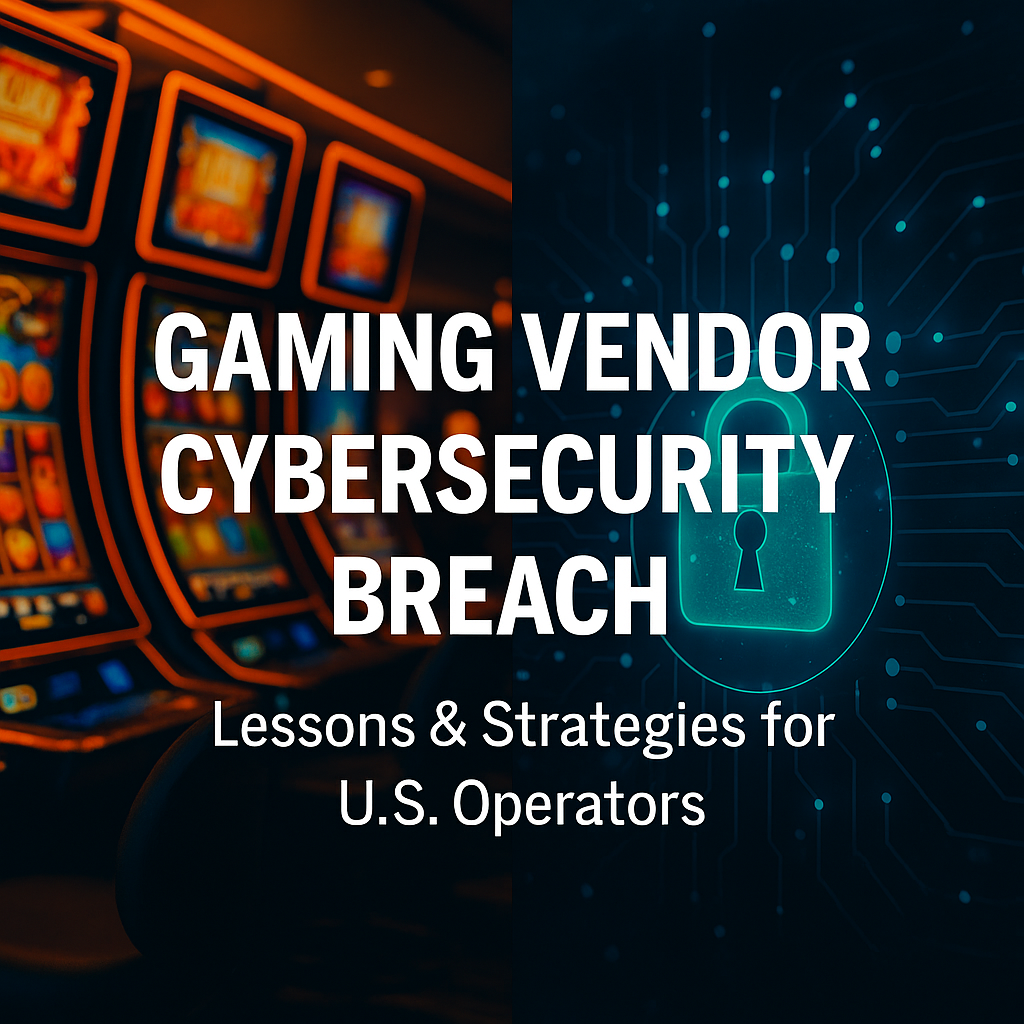In August 2025, Bragg Gaming confirmed a cybersecurity incident affecting its internal systems. While no player data was compromised, the event underscored a growing threat vector for the casino industry — vendor-based cyberattacks.
As online gaming revenues hit new highs in states like Michigan, New Jersey, and Pennsylvania, operators are increasingly dependent on third-party providers. This makes gaming vendor cybersecurity breaches one of the most pressing risks facing the U.S. gaming sector today.
What Happened: The Bragg Gaming Incident
Bragg disclosed the breach on August 16, 2025, stating that operations continued uninterrupted and no customer data was affected.
Although contained quickly, the incident raised concerns across the gaming community. Because Bragg is a major third-party supplier for online casino operators, a breach within its systems serves as a warning: even trusted vendors can introduce vulnerabilities that ripple downstream.
Why Vendor Breaches Matter for U.S. Casinos
Vendor-based threats are uniquely dangerous for casinos and iGaming operators:
- Expanded attack surface: Vendors often have system-level access, creating hidden entry points.
- Reputational fallout: Even if you aren’t breached directly, players associate the vendor’s compromise with your brand.
- Regulatory scrutiny: Gaming regulators now demand proof of vendor oversight and rapid incident notification.
- Operational impact: Downtime, data tampering, or compromised APIs can disrupt service delivery and compliance reporting.
In short, you’re only as secure as your weakest link — and in an integrated gaming ecosystem, that link is often external.
The Bigger Picture: iGaming Growth and Rising Risk
August 2025 data shows a clear upward trend. Online casinos in Michigan, New Jersey, and Pennsylvania collectively reported $742.9 million in revenue, up 4.5% from July.
As the digital gaming market expands, so does reliance on external game providers, data analytics platforms, affiliate networks, and payment gateways. Each integration adds operational value—but also new exposure.
The Bragg incident illustrates how cybersecurity and vendor management must now evolve in lockstep with market growth.
Lessons for Operators: Building Resilience Against Vendor Threats
Here’s a playbook for managing third-party risk and preventing a gaming vendor cybersecurity breach in your environment.
1. Strengthen Vendor Due Diligence
- Conduct pre-contract security assessments.
- Require SOC 2, ISO 27001, or recent penetration test reports.
- Review incident response and data handling policies before onboarding.
2. Apply Zero Trust Principles
- Limit vendor access to only what’s required.
- Segment networks so vendors cannot move laterally.
- Require multi-factor authentication (MFA) for all external accounts.
3. Mandate Continuous Monitoring
- Integrate vendor telemetry into your SIEM or MDR platform.
- Establish alert thresholds for unusual access or data movement.
4. Tighten Contracts and SLAs
- Define breach notification timelines (24–48 hours).
- Include liability clauses and audit rights.
- Require vendors to participate in joint incident simulations.
5. Run Regular Pen Tests and Tabletop Exercises
Simulate vendor breaches during red team operations. Test how quickly your team detects and isolates vendor-originating threats.
6. Communicate Transparently
Prepare pre-approved messaging for customers and regulators. Even if the incident originates elsewhere, swift, honest updates protect your brand trust.
From Lessons to Leadership
Vendor compromises are not rare anomalies—they’re the new norm. The Bragg Gaming incident is a reminder that cybersecurity accountability extends beyond your walls. Every integration, API connection, and service provider is a potential target.
For U.S. casinos and iGaming operators, resilience means turning third-party risk into managed confidence through consistent governance, technology oversight, and proactive incident readiness.
Contact Saturn Partners to assess your vendor risk exposure, implement zero trust strategies, and protect your operations from evolving supply-chain threats.

